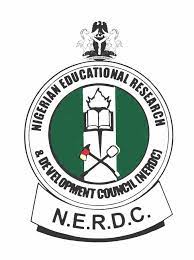
The Nigerian Educational Research and Development Council (NERDC) has emphasized the importance of stakeholders engaging in discourse and contributing meaningfully to the development of a revised Senior Secondary Education Curriculum (SSEC) that meets international standards.
On Thursday in Abuja, Prof. Ismail Junaidu, the Executive Secretary of the NERDC, delivered his opinion during the North-Central Zone National Stakeholders’ Dialogue for the review of the SSEC.
“The stakeholders’ consultative forum was designed to bring together the perspectives of all Nigerians, including students, on challenges and expectations related to the curriculum,” Junaidu explained.
He explained that the necessity to restructure, realign, and rewrite the curricula emerged primarily because the curricula of the former Primary, Junior, and Senior Secondary Schools were no longer meeting educational goals.
He stated that the gaps were in the development of human capital, job creation, and poverty elimination.
“There was also the compelling need to meet the targets of the International Agreed Goals as well as ensure the acquisition of competences and skills for laying the foundation of vocational and entrepreneurship development in Nigeria.
“You will observe that times have changed; the world has moved on, new ideas have been created, knowledge has advanced, new world goals have been set, new skills have emerged and new technologies have been developed.
“The only way we can adequately respond to these changes and create opportunities for our children to acquire new skills and competencies for living in the new world, is to provide them with the requisite learning experiences through the revision of the curriculum,’’ Junaidu said.
He said there was urgent need, particularly at the senior secondary education, to create opportunity for students and learners to acquire relevant trade/entrepreneurship skills required for poverty eradication,’’ he said.
He also mentioned the need of creating jobs and income, as well as solidifying the foundation for ethical, moral, and civic principles learned in elementary school.
He went on to say that the current initiative’s main goal was to develop a curriculum that would not only suit the needs of the period, but would also help us to create the future that we want as a people.
“We recognise that the curriculum is an outcome of the decisions of the people as to what knowledge, skills, values and competencies learners should be taught in schools.
“This is in order for them to live and contribute meaningfully to the development and growth of the society.
“It is on this basis that the NERDC initiated series of activities to elaborately engage stakeholders with the intent of ensuring that curriculum, in its real sense reflects the needs and aspirations of all Nigerians,” he said.
As a result, he invited the attendees to discuss and come up with resolutions on concerns connected to significant emerging challenges that should be addressed in the senior secondary education curriculum.
While praising NERDC, Mr. Michael Banda of the United Nations Children’s Emergency Fund (UNICEF) stated that the effort was on track.
Banda stated that the country required a cadre of young people, both girls and boys, to graduate from the educational system and be ready to function in the modern world.
“This is in terms of their requisite skills to innovate, adapt quickly to the changing global market and to also be able to be self-determined, independent and entrepreneurs among others.
“Sometimes, children are not only determined by mathematics, physics, chemistry and others, they need certain requisite skills which we call life skills.
“These are soft skills, transferable skills; these skills are determined by whom they are as human beings to be able to be cohesive with the demands of the society,’’ he explained.
The review will take place 10 years after the current SSEC was introduced into schools in 2011, as opposed to the five-year periodic review.
Delegates from Benue, Plateau, Kogi, Niger, Nasarawa, Kwara, and the Federal Capital Territory attended.
Source: The Vanguard